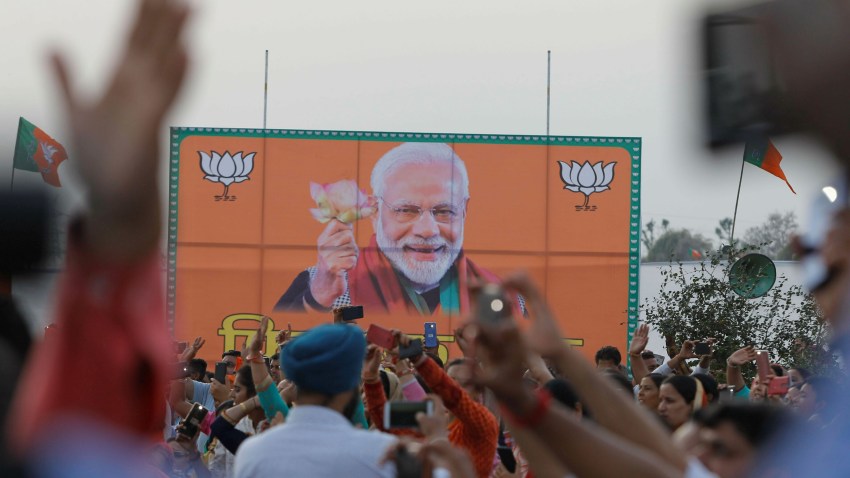Indian PM Narendra Modi was in Ayodhya, in northern India, on Monday to ceremonially open a controversial Hindu temple built on the ruins of a historic mosque that had been destroyed by Hindu activists in 1992. The event was turned into a national occasion, with live screenings organized across the country, stock markets closed for the day and TV news running nonstop coverage. (AP)
Our Take
The opening of the temple, and Modi’s instrumentalization of it, marks the unofficial start of Modi’s campaign for a third term in office, with general elections expected to be called in the spring. It is also the latest illustration of the mutually beneficial ties between Modi and India’s Hindu nationalist movement, which he and his party have utilized to gain political power and amplified via his government’s policies and rhetoric.
The illiberalism associated with Modi’s brand of Hindu nationalism is at this point well-documented—at least abroad. Within India, press freedoms are shrinking, with a growing number of journalists, particularly those who cover religion and communal violence, facing punitive action, including criminal cases as well as threats of violence and harassment.

